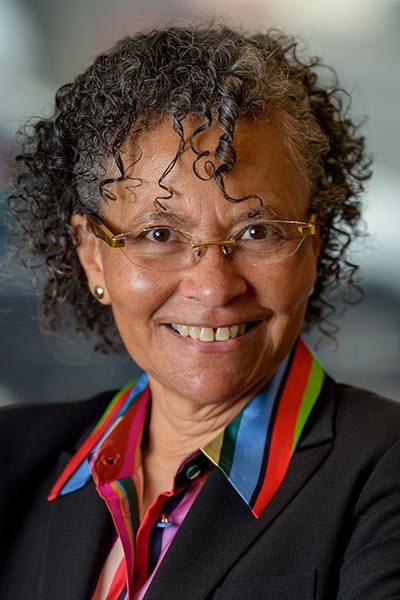Regardless of medical specialty, clinicians and investigators alike can quickly name persistent, well-known differences in health outcomes by race. Despite the prevalence of this information, it has no biological basis.

“We’ve mapped the human genome. There is no basis for racial speciation in our genes,” said Camara Phyllis Jones, MD, MPH, PhD. “The fact that we see any association is because of historical injustices that are being perpetuated by present-day contemporary structures, structural factors of policies, and redlining, which is structural racism.”
Dr. Jones, an expert on the effects of racism on well-being, will be the featured keynote speaker during the Opening Session and Awards of ACR Convergence 2024 on Friday, Nov. 15, from 4–6 p.m. ET in Hall D/E of the Walter E. Washington Convention Center. The session will be available on demand within 48 hours for registered ACR Convergence 2024 participants.
Dr. Jones is currently a Commissioner on the three-year O’Neill-Lancet Commission on Racism, Structural Discrimination, and Global Health, as well as an Adjunct Professor at the Rollins School of Public Health, Senior Fellow at the Morehouse School of Medicine, and Visiting Professor at King’s College London, United Kingdom. She is an elected member of the National Academy of Medicine and the American Academy of Arts and Sciences.
“As a healing profession, maybe we can see our healing not just for the patients who present themselves to us, or even the patients that we find as we do more community-based or population-based work who need our knowledge and skills, but see also that we are part of a bigger society, and to the extent that I think about our role as part of a larger community, will gain and the community will gain,” she said.
A family physician and epidemiologist, Dr. Jones is the Past President of the American Public Health Association, and her work focuses on naming, measuring, and addressing the impacts of racism on the health and well-being of our nation and the world. Her allegories on “race” and racism illuminate topics that are otherwise difficult for many Americans to understand or discuss: that racism exists, racism is a system, racism saps the strength of the whole society, and we can act to dismantle racism.
“I’ll be sharing my allegory that I call ‘Reality in a Restaurant Saga,’ which helps us to understand, and to be able to easily communicate to others, that racism exists,” Dr. Jones said. “That’s very important, because I observe that there is so much racism denial in our country, always, but it’s just getting amplified these days.”
She also will share her father’s allegory tale, “Levels of Racism: A Gardener’s Tale,” which outlines three levels of racism — structural, personally mediated, and internalized — and their impacts.
“I will illustrate the three levels and further assert that if we want to set things right in our society, in the garden, we must at least address the structural racism,” Dr. Jones said. “It’s good for us to address all the levels at the same time, but we must at least address the structural racism. And when we do, the other levels may take care of themselves.”
In the allegory “Cement Dust in Our Lungs,” she will help the audience understand that individuals can intervene on racism at many levels, but racism must be addressed at the systems level to achieve lasting change.
“I’m going to be telling stories, and it should be inspiring, engaging, and inviting,” Dr. Jones said. “This talk doesn’t assume anything about anybody’s past experiences or their politics or anything. This is for all of us to engage in a conversation, but I think that by the end of this, people will be inspired to be social justice warriors.”
Register Today for ACR Convergence 2025

If you haven’t registered for ACR Convergence 2025, register today to participate in this year’s premier rheumatology experience, October 24–29 in Chicago. All registered participants receive on-demand access to scientific sessions after the meeting through October 31, 2026.
